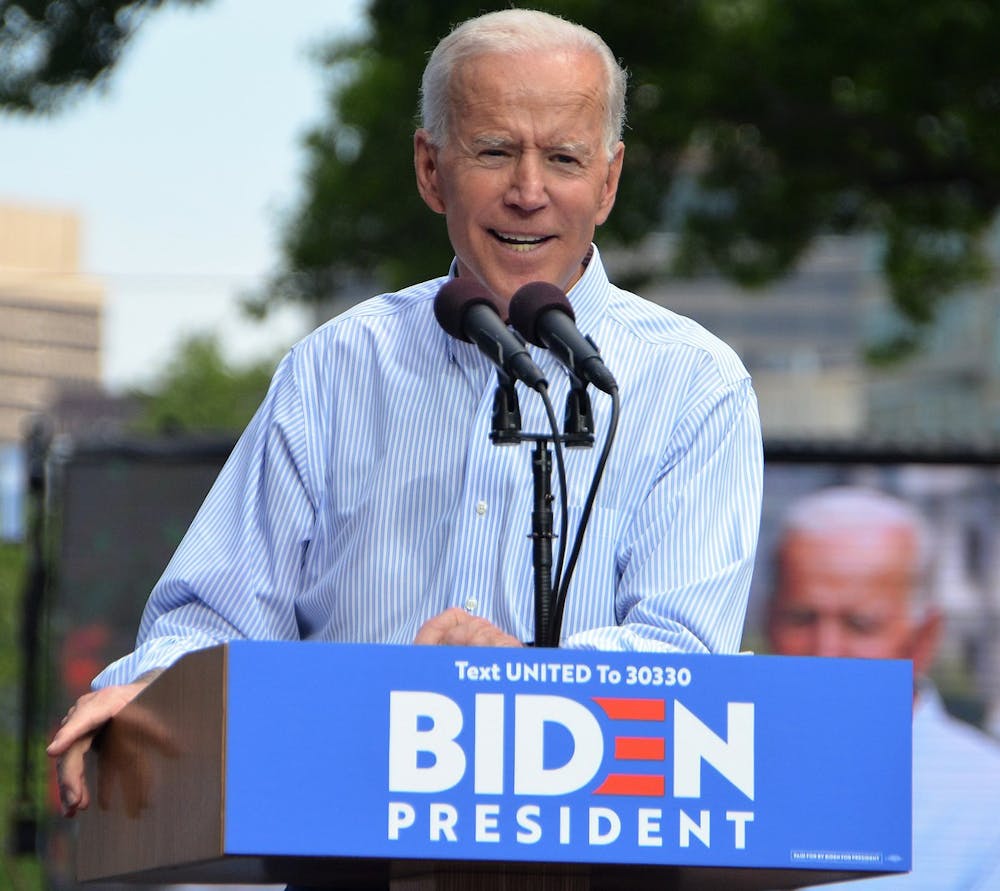With midterms quickly approaching, we are reminded once again of the impending 2024 election. President Joe Biden still hasn’t formally decided whether he will be running for a second term. This raises the million-dollar question: should he run again?
In recent weeks, President Biden’s approval rating has been comparable to his predecessors at the same point of their tenures, a great feat seeing that only a few months ago his approval rating hit historic lows. September polling also indicates a reinvigoration of support among Democrats, with 78% saying they approve of Biden’s job performance — a significant increase from 65% in July.
Biden quietly racking up legislative wins combined with Trump’s re-emergence easily serves as fuel for his potential 2024 run. In just under two years, Democrats have managed to pass groundbreaking legislation, including but not limited to a $1.9 trillion stimulus package, a $1.2 trillion infrastructure bill and some of the most significant gun legislation in decades.
Add in the recently passed Inflation Reduction Act and one thing is clear: Biden delivers.
Despite Biden’s effectiveness, a majority of Democrats want someone other than Biden to represent the party in the 2024 presidential election. Many cite his old age as their chief concern regarding his run for second term. I don’t disagree — Biden is already the oldest president in US history. But if not him, then who?
Don’t get me wrong, there are plenty of young rising stars within the Democratic Party. But it will be difficult, if not impossible, to find a nominee who would be able to consolidate the different voting blocs that led Biden to his victory in 2020.
Take Vice President Harris, for example. She’s the likely favorite for the Democratic nomination if Biden forgoes a 2024 run and yet despite the administration’s recent wins, her approval rating is still trending downward. Harris would also be running with significantly less experience than Biden, who served 36 years on the Senate with various leadership roles during his tenure, and will likely face greater obstacles from the Republican party.
Other potential candidates include those who were unable to win the nomination in 2020 — Amy Klobuchar, Pete Buttigieg, Elizabeth Warren, Cory Booker, Bernie Sanders — and other Democrats including Gavin Newsom, Alexandria Ocasio-Cortez, J.B. Pritzker and Gretchen Whitmer. However, none have yet to cement themselves as a clear frontrunner for the potential nomination. Further, there’s little to no indication that they’ll be able to gain as much support from the Democratic and independent voter bases as Biden.
While Biden will become the first octogenarian president come this November and has been characterized as “senile” — his effectiveness on both foreign and national issues has not gone unnoticed.
Biden has played a critical role in one of the most pressing foreign policy issues of our time by providing billions of dollars in assistance to Ukraine’s fight against Russian invasion. At home, he has led the nation through various crises he inherited when he took office in January 2021, guiding us to a current unemployment rate of 3.5% and effective COVID response.
Though his support is slipping, former president Donald Trump maintains a hold on the Republican Party, which continues to move toward the extreme end of the political spectrum. Biden continues to prevail as the best option.
We need a leader who will have a steady hand and effectively guide a nation. A Biden 2024 run would forgo a brutal primary and avert the possibility of Trump or another “MAGA Republican” winning the presidency. If Democrats can gain a majority in the Senate and keep their majority in the House against midterm expectations, Biden’s favorability as the Democratic nominee will only climb.
Alisha Heng is a sophomore from New York City, N.Y. studying Composition and Political Science.





